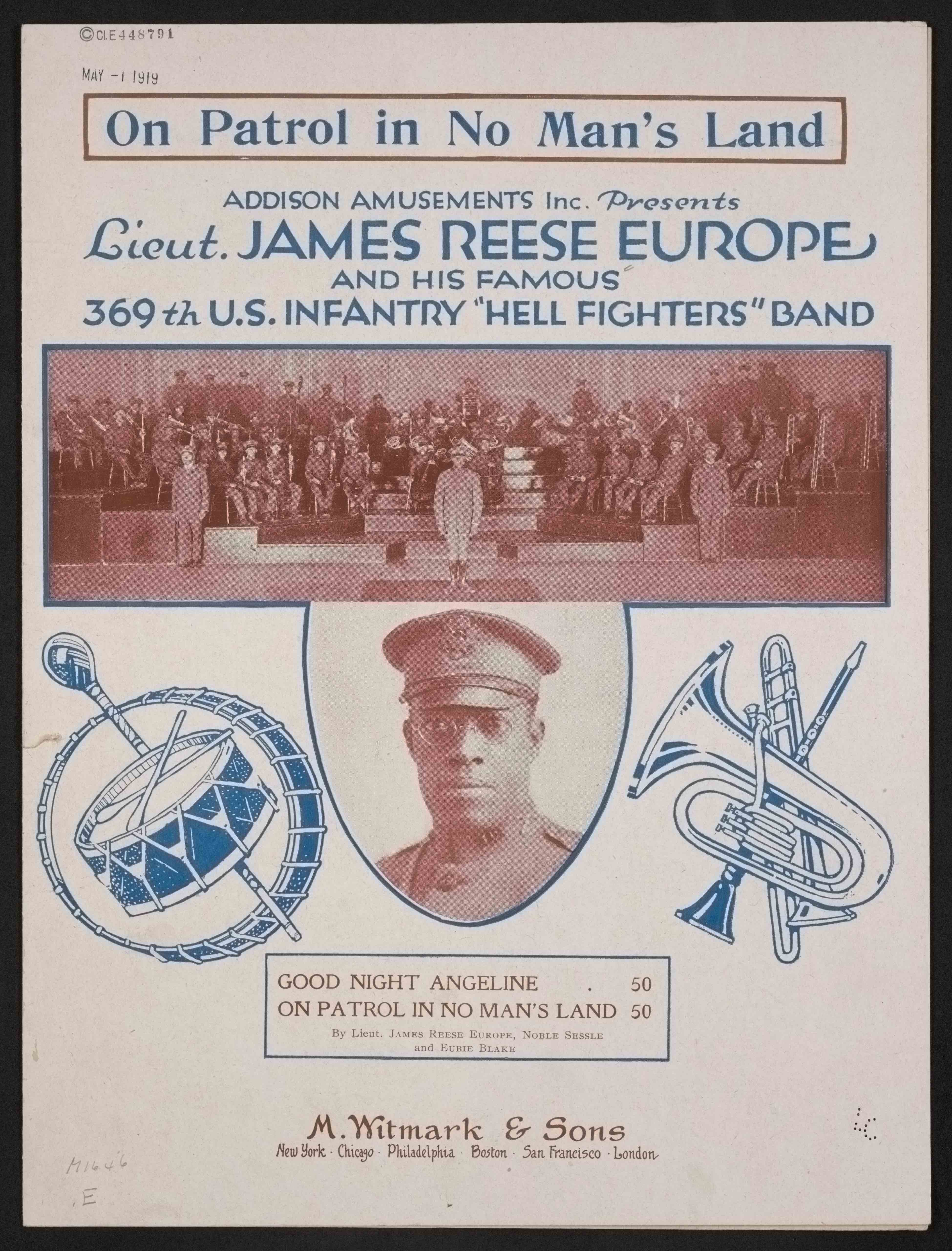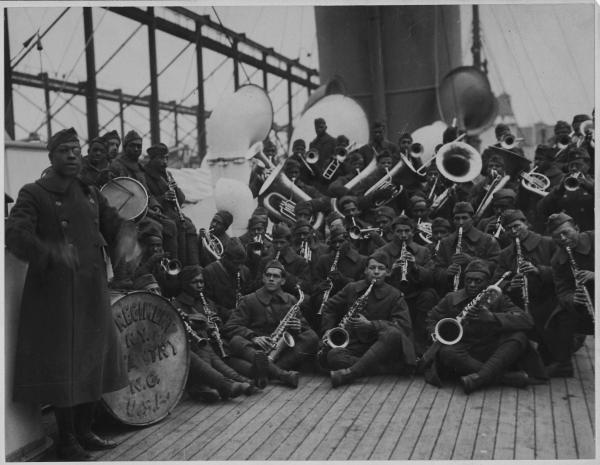To mark Black History Month, we’re sharing a selection of recordings by James Reese Europe that can also be found in the exhibition Imagined Fronts: The Great War and Global Media, now on view.
James Reese Europe and his remarkable jazz band, who served in World War I with the 369th U.S. Infantry (known as the “Harlem Hellfighters”) and traveled through Europe playing for the troops and general population in France to great sensation, are credited with introducing jazz to France. Prior to the war, Europe was one of the foremost bandleaders and composers in Harlem. He moved to New York in 1904 and started working as a pianist in the Black theater scene, going on to help found the Clef Club of Black musicians in New York and achieving prominence as a jazz musician, with close ties to composers Noble Sissle and Eubie Blake.

While serving on the Western Front, Europe was encouraged to form a jazz band to entertain soldiers, officers, and French civilians. Towards the end of the war, he was commissioned to perform in camps, hospitals, and eventually in occupied Germany before returning in triumph to New York. (Europe is pictured in the photo at top, at left, returning home on the SS Stockholm with the 369th Infantry.)
Europe, Noble Sissle, and Eubie Blake composed and recorded “On Patrol in No Man’s Land,” which you can listen to below, within weeks of the band’s arrival in New York. Tragically, Europe’s life would be cut short just a few months later when he was murdered by one of his bandmates, Herbert Wright, after Europe gave him some unwelcome feedback on his performance. Europe was buried at Arlington National Cemetery following New York City’s first-ever public funeral for a Black American. Today, Europe’s music lives on in this rare recording.
Imagined Fronts is on view in the Resnick Pavilion through July 7, 2024.



